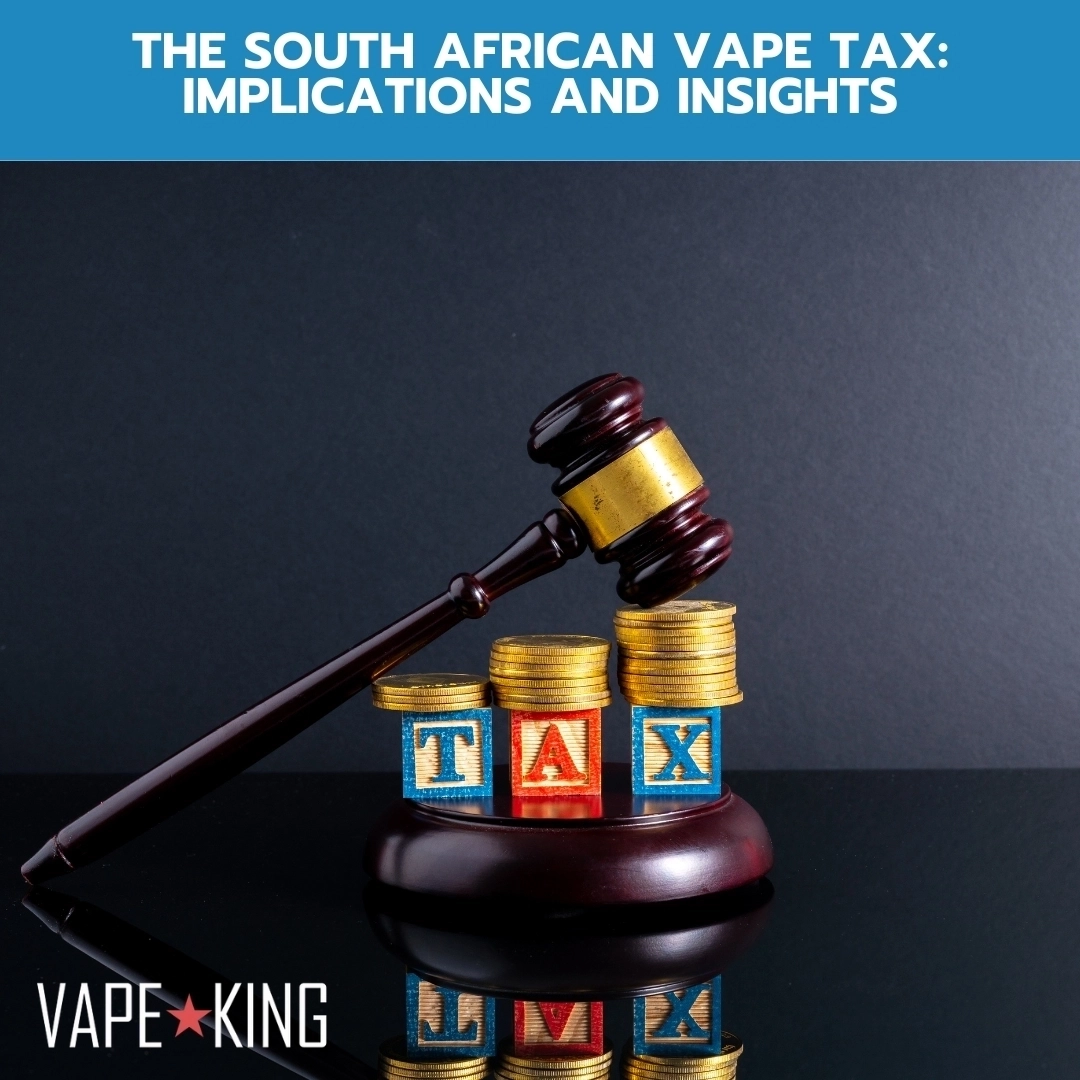The South African Vape Tax: Implications and Insights

Vaping has become a global phenomenon, offering an alternative to traditional smoking and a growing industry. As vaping continues to gain popularity in South Africa, so does the discussion around taxation. In this blog post, we will delve into the South African vape tax, exploring its implications, controversies, and its impact on the vaping community.
Understanding the South African Vape Tax
The South African government introduced the vape tax in 2020 as an amendment to the existing Tobacco Excise Tax. This tax is applicable to electronic nicotine delivery systems (ENDS), which include e-cigarettes, vape pens, and related devices. The primary objective was to curb youth vaping and protect public health. In June of 2023 the implementation took place adding R2.90 per ml to all vape liquids and disposable vapes.
Implications of the Vape Tax
- Price Increase: The most immediate effect of the vape tax is an increase in the retail price of vaping products. Vapers have had to dig deeper into their pockets to enjoy their preferred e-liquids and devices.
- Impact on Smokers: Proponents of vaping as a smoking cessation tool argue that higher vape prices may discourage smokers from transitioning to a less harmful alternative.
- Reduced Accessibility: The increased prices might reduce the accessibility of vaping products to some individuals, particularly young people. Vaping enthusiasts may turn to the black market to bypass higher costs.
- Market Shift: South Africa has seen a shift in the market, with some vapers moving towards more affordable options, like disposable vapes, while others have sought out DIY solutions to save on costs.
- Potential Health Impact: If the tax leads to a decline in the number of people switching from smoking to vaping, it may have unintended health consequences, as smoking is a far more harmful habit.
Controversies Surrounding the Vape Tax
The South African vape tax has sparked a fair share of controversies:
- Lack of Evidence: Some argue that the tax was introduced without sufficient evidence that vaping posed a significant risk, especially in comparison to smoking.
- Discrepancies with Smoking Tax: Critics point out that vaping products are taxed at a higher rate than traditional cigarettes, creating an unusual disparity.
- Impact on Small Businesses: Vape shops and small businesses have been negatively affected, as higher prices often result in decreased sales.
- Effect on Harm Reduction: Advocates of harm reduction argue that the vape tax might hinder the government's goal of reducing the harm caused by smoking.
Moving Forward with the South African Vape Tax
As the debate surrounding the South African vape tax continues, it is essential for all stakeholders to consider a balanced approach. While public health concerns are paramount, it's equally important to provide a platform for smokers to access less harmful alternatives.
Continued research and open dialogues between government, public health authorities, and the vaping community are essential to strike a balance between taxation, public health, and individual choice.
The South African vape tax remains a significant topic of discussion, and its ultimate impact on public health and the vaping industry will only become clear in the years to come.
No posts found
Write a reviewRecent posts
- Vaping vs Smoking: Debunking Myths and Preserving a Public Health Breakthrough
- Could New Vaping Laws Backfire by Pushing South Africans Back to Smoking?
- Proper Disposal of Disposable Vapes in South Africa—Why It Matters and How to Do It
- Public Hearings on the Tobacco Products and Electronic Delivery Systems Control Bill – What It Means for Vapers in South Africa
- Top 5 Disposable Vapes - South Africa – November 2024
- Black November Deals at Vape King: Grab These Unbeatable Specials!


